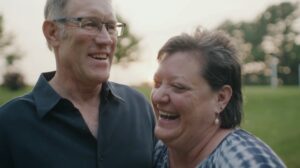Downloadable Digital Files Terms and Conditions of Use
1.0 Introduction
These terms and conditions set out the terms and conditions between you, the visitor, customer, or your organization, and The National Alliance for Caregiving (“us”, “we”), governing the use of our website and our downloadable digital files including the content therein (the “files”). Your use of our website, and download, download, and use of our files, constitutes your full acceptance of these terms and conditions. If you do not agree with these terms and conditions, you should not use our website or download or use any of our files.
2.0 License and Use
As part of a national movement to open data to innovators, businesses, and non-profits, the National Alliance for Caregiving is proud to share the following data sets.
The following research is licensed under a
Creative Commons Attribution 4.0 International License. Please attribute your work with this data to the researchers indicated below. Your download of one of our files constitutes our granting to you of a non-exclusive, non-sublicensable, non-transferable license to download and access that file for the purpose of your own or your organization's use and reference, and print or convert the file to an image or vector format for your own storage, retention, and reference (the “purpose”). You agree that under no circumstances shall you use, or permit to be used, any file other than for the aforesaid purpose. For the avoidance of doubt, you shall not copy, re-sell, sublicense, rent out, share or otherwise distribute any of our files, whether modified or not, to any third party. You agree not to use any of our files in a way that might be detrimental to us or damage our reputation.
3.0 Intellectual Property
The files, whether modified or not and all intellectual property and copyright contained therein, are and shall at all times remain our sole and exclusive property. You agree that under no circumstances, whether the file has been modified or not, shall you have or attempt to claim ownership of any intellectual property rights or copyright in the file.
4.0 Warranties and Liability
We make every effort to ensure that our files are accurate, authoritative, and fit for the use of our visitors. However, we take no responsibility whatsoever for the suitability of the file, and we provide no warranties as to the function or use of the file, whether express, implied, or statutory, including without limitation any warranties of merchantability or fitness for a particular purpose. You agree to indemnify us against all liabilities, claims, demands, expenses, actions, costs, damages, or loss arising out of your breach of these terms and conditions. Furthermore, we shall not be liable to you or any party for consequential, indirect, special, or exemplary damages including but not limited to damages for loss of profits, business, or anticipated benefits whether arising under tort, contract, negligence, or otherwise whether or not foreseen, reasonably foreseeable or advised of the possibility of such damages.
5.0 General
These terms and conditions constitute the entire agreement and understanding between you and us for the supply of downloadable digital files and shall supersede any prior agreements whether made in writing, orally, implied, or otherwise. The failure by us to exercise or enforce any right(s) under these terms and conditions shall not be deemed to be a waiver of any such right(s) or operate so as to bar the exercise or enforcement thereof at any time(s) thereafter, as a waiver of another or constitute a continuing waiver. You agree that monetary damages may not be a sufficient remedy for the damage which may accrue to us by reason of your breach of these terms and conditions, therefore we shall be entitled to seek injunctive relief to enforce the obligations contained herein. The unenforceability of any single provision within these terms and conditions shall not affect any other provision hereof. These terms and conditions, your acceptance thereof, and our relationship with you shall be governed by and construed in accordance with English law and both us and you irrevocably submit to the exclusive jurisdiction of the English courts over any claim, dispute, or matter arising under or in connection with these terms and conditions or our relationship with you.
Contacting Us
Please do not hesitate to contact us regarding any matter relating to this Downloadable Digital files Terms and Conditions of Sale Policy via email
info@caregiving.org.



